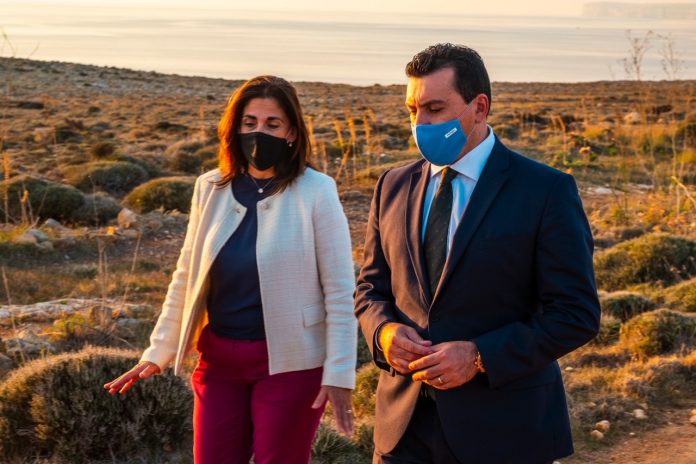Biodiversity conservation and proper management of our ecosystems includes identification and prevention of invasive alien species on our islands, and it is an integral part of our work towards climate change mitigation.
This might seem obvious, but it’s a result of meaningful political commitments, and economic growth and prosperity cannot come at the detriment of our precious natural resources, Minister for the Environment, Climate Change and Planning Aaron Farrugia said.
The Minister announced the launch of a National Strategy for Preventing and Mitigating the Impact of Invasive Alien Species by the Environment and Resources Authority (ERA), and explained that invasive alien species are among the most significant cause of biodiversity degradation impacting our rural, urban, and maritime environment.
He explained that, as an island, Malta is susceptible to such species including animals, plants, fungi and other organisms which can cause problems to our ecosystems.
Throughout the years, a number of alien species were introduced in the Maltese islands. Although alien species are not all problematic, some of them become invasive and create serious environmental issues.
Interventions related to the removal of species around the islands based on this strategy are ongoing, whereby tonnes of invasive alien species were already removed from a number of areas. In 2020 alone, the Ministry cleared around 93 tonnes of invasive alien species from l-Irdum tal-Madonna, l-Aħrax tal-Mellieħa, and two tonnes from Wied Għollieqa, Pembroke, and Marsaxlokk.
The launch of this strategy coincides with scientific evidence indicating widespread global biodiversity loss, allowing Malta to strengthen its efforts to protect local ecosystems.
This strategy is proposing coordinated processes with cooperation efforts for:
- The prevention of species which could cause harm to our environment;
- Evaluation of risks;
- Early identification;
- Timely response;
- Other initiatives which need to be taken into account for effective follow-up management as necessary.
“All this could not have been possible without the work done by ERA, and the result of a series of stakeholder meetings, a public consultation and a lot of scientific research. These have helped refine this document to reflect the national goals for the protection of our environment so that it can be enjoyed by future generations,” the Minister said. “But this is not enough; we must now work together to ensure collective implementation to effectively safeguard our environment.”
ERA CEO Michelle Piccinino said that ERA is continuing its work to protect our country’s biodiversity, and has therefore launched this strategy to raise awareness on invasive alien species and the risk they pose, as well as to create measures to address their impacts.










